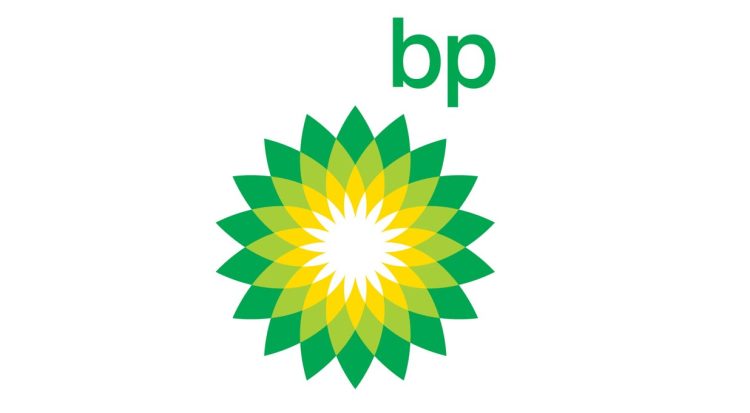BP’s first-quarter revenue fell 13% to $48.9bn and underlying operating profit fell from $9.2bn to $6.0bn. There were declines in all divisions, driven by lower oil and gas prices, a power outage at the Whiting refinery in Indiana, and lower margins on the sales of fuel products.
Free cash flow fell from $4.0bn to $0.7bn ref lecting lower profits but also increased investment in the business. Net debt rose 13% to $24.0bn.
In the second quarter, the group expects a slight decrease in oil production. Margins on fuel prices will remain highly sensitive to input costs. Refining margins are expected to stay under pressure from market dynamics but also maintenance activity.
BP declared a quarterly dividend of 7.2c and announced a $1.75bn share buy back in line with a first half target of $3.5bn.
The shares were trading flat following the announcement.
Our view
Lower oil & gas prices took their toll on BP’s first-quarter profits, and with the recent recovery having quickly moved into reverse, these pressures are set to continue for now. However, markets haven’t panicked suggesting a degree of confidence in the Group’s plans to invest in both traditional and emerging energy activities. Meanwhile, an extra $2bn in cost savings that BP hopes to deliver by the end of 2026, should help to ensure that more revenue flows through to the bottom line. And although net debt has spiked a little of late, we don’t see things getting out of control
That's just as well, because both BP's traditional oil & gas extraction business and its emerging focus on cleaner forms of energy, are highly capital intensive. Capital expenditure topped $16bn last year and is likely to stay at a similar level till at least 2030.
Despite the weakness in commodity prices, consensus forecasts suggest that BP's investment plans are well covered, leaving ample room to increase dividends modestly and continue buying back shares. Over 2024 and 2025 there are plans to repurchase at least $14bn of shares, which, if spread evenly, see current buyback levels remain stable. Of course, no shareholder returns are guaranteed.
Oil & gas assets remain the key drivers of cash flow for now and underlying production is set to increase by 2025. But there is growing pressure globally for more meaningful taxes on oil and gas profits which could dent cash flows. However, BP’s recent progress on its development portfolio in fossil fuels has a wide geographic spread. This means it’s not too exposed to the tax regime in any given region. It’s also cherry-picking higher returning assets, which, all other things being equal, should be a benefit to the bottom line.
The Group has also been making some meaningful headway in transition technologies such as biogas, electric vehicle charging and renewables. Whilst investment in low carbon energy is expected to grow, hydrocarbons remain the focus of the company's spending plans for the foreseeable future.
BP's valuation remains some way below the long-term average. In our opinion, this reflects investor concern over the long-term outlook for the oil & gas industry. However, it's also lagging its peers and that could present an opportunity if the new CEO can provide investors with assurance that BP can prosper over the long term. Although of course there are no guarantees.
Environmental, social and governance (ESG) risk
Environmental concerns are the primary driver of ESG risk for oil and gas producers, with carbon emissions and waste disposal being the main issues. Health and safety, community relations and ethical governance are also contributors to ESG risk.
According to data from Sustainalytics, BP's overall management of material ESG issues is strong. It appears to have strong oversight over its key ESG issue. Notably, the company aims to reach net zero emissions across its entire operations (scopes 1 and 2) and upstream operations (scope 3) on an absolute basis by 2050. But nearer-term reduction targets for scope 3 emissions have recently been lowered. Moreover, BP has committed to reducing the carbon intensity of its products to net zero by 2050. However, controversies relating to environmental breaches continue to have a moderate impact on BP's overall performance.
BP key facts
All ratios are sourced from Refinitiv, based on previous day’s closing values. Please remember yields are variable and not a reliable indicator of future income. Keep in mind key figures shouldn’t be looked at on their own – it’s important to understand the big picture.
This article is not advice or a recommendation to buy, sell or hold any investment.No view is given on the present or future value or price of any investment, and investors should form their own view on any proposed investment.This article has not been prepared in accordance with legal requirements designed to promote the independence of investment research and is considered a marketing communication.Non - independent research is not subject to FCA rules prohibiting dealing ahead of research, however HL has put controls in place(including dealing restrictions, physical and information barriers) to manage potential conflicts of interest presented by such dealing.Please see our full non - independent research disclosure for more information.








